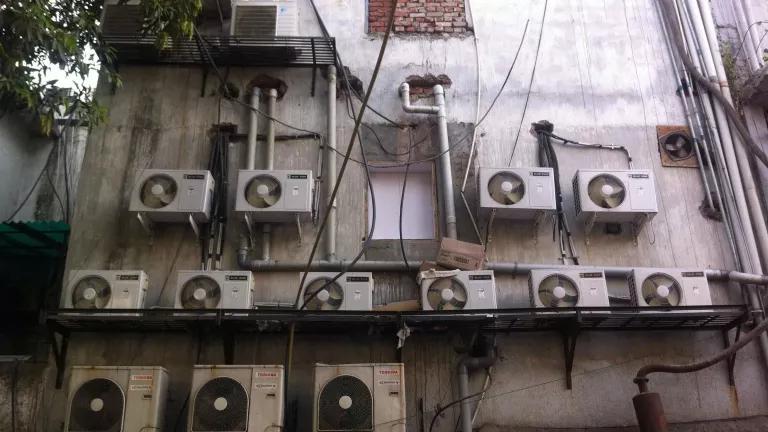
This is a two-part blog series on India’s initiatives on sustainable cooling.
Leaders around the world are gathering for the 31st Meeting of the Parties to the Montreal Protocol in Rome next week to continue preparations for the Kigali Amendment, the global deal to phase down heat-trapping hydrofluorocarbons (HFCs).
The aim of the Kigali Amendment is to reduce global reliance on HFCs—potent greenhouse gases used in air conditioning and refrigeration, for making insulating foams, and in some aerosol and other products—over the next few decades. Though accounting for only 1-2% of total annual greenhouse gas emissions today, HFCs are the fastest growing climate pollutants because of the skyrocketing demand for air conditioning and refrigeration in developing markets such as India. The fully-implemented Kigali Amendment is expected to avoid a massive 0.24 – 0.44°C of warming by century’s end.
Momentum is increasing both at international and national levels to develop mechanisms for ensuring implementation of the Kigali Amendment, which came into force in January 2019. Earlier this year, the 41st Open Ended Working Group (OEWG) meeting of the Montreal Protocol in Bangkok, highlighted an important trend: countries are prioritizing greater energy efficiency in air conditioning and refrigeration appliances as they transition away from using HFCs. Doing so will significantly increase the environmental and economic benefits of implementing the Kigali Amendment. Cooling appliances that use less energy put less stress on electrical grids, cost owners less in utility bills, and rely less on polluting power generators.
Diplomatic talks on energy efficiency at the Montreal Protocol have slowed, however. To fill the gap, countries, civil society, and private industries have stepped in. At this summer’s OEWG, several countries showcased domestic action towards sustainable cooling by debuting their national level cooling action plans. China, Rwanda and India have released national cooling action plans, laying out detailed, cross-sectoral policy plans. Plans like these will help ensure that growing cooling demand can be met more sustainably.
India, a major proponent of efficient, released its India Cooling Action Plan and is now implementing the plan. There are several related initiatives to advance cooling that work to address cooling holistically by addressing refrigerants and energy efficiency simultaneously. The second part of this blog provides examples of additional initiatives, such as the program by Energy Efficiency Services Limited (EESL) to advance more efficient, as well as preview exciting news from the Global Cooling Prize coming in November.
During the Montreal Protocol meetings next week, the Ministry of Environment, Forests, and Climate Change will host a side event to showcase the development of the India Cooling Action Plan (ICAP), released earlier this year. As the plan now enters its implementation phase, the side event will also provide an opportunity to highlight the evolving implementation strategies. India has been a constructive partner to the Montreal Protocol through its HPMPs and took a bold step to develop a comprehensive cooling action plan. The ICAP provides an integrated vision towards cooling across sectors encompassing inter alia reduction of cooling demand, enhancing energy efficiency, ensuring access to cooling and better technology options with a 20-year time horizon. It also provides short, medium- and long-term recommendations on interventions across different sectors to advance sustainable cooling and thermal comfort for all. NRDC and partners, TERI, CEEW, and AEEE look forward to speaking at the MOEFCC side-event next week along with our key partners in cooling India with less warming.
“Facilitating the Implementation of the India Cooling Action Plan (ICAP)”
Date: Friday, 8th November, 2019
Time: 1:00 PM to 3:00 PM
Venue: Food and Agriculture Organization of the United Nations, Rome, Italy
Prima Madan lead NRDC's work on cooling based as a consultant in New Delhi.


